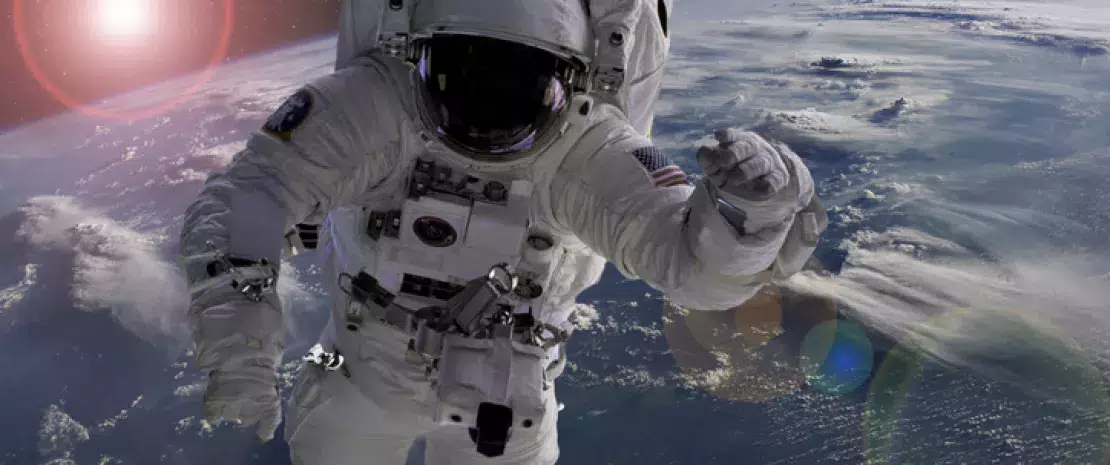Bear this in mind before embarking on a trip to Mars: space missions aren’t all fun. Microgravity can atrophy idle muscles and subject bones to early osteoporosis; gastrointestinal transit slows down; altered day-night cycles disrupt sleep; and isolation affects mental health. If that’s not enough, the gut microbiota becomes unbalanced and the skin, nose and tongue microbiota start to mimic those of other crew members. Is this all connected? Might the microbiota alterations contribute to other imbalances? A recent review focusing on astronauts’ health suggests so.
Microbiota: the central factor?
We know the microbiota produces short-chain fatty acids (SCFAs1), small molecules that affect appetite and satiety. Turned upside down by life in space and subjected to a fiber-depleted diet, the gut flora may accordingly inhibit astronauts’ appetite by synthesizing appetite-suppressant compounds. In addition, an alteration of the gut microbiota may reduce absorption of vitamins and minerals and play a role in the deterioration of the musculoskeletal system. Psychomotor functions and neurocognitive performance also deteriorate with time in space and these too may be under the influence of the gut microbiota, which acts on mood, stress, cognition, behavior, among others. Even the decline in astronauts’ immune functions may be partly explained by changes in the microbiota.
Helping out the microbiota
Therefore, space travel significantly modifies astronauts’ microbiota, particularly their gut microbiota. This may have an impact on their bone and muscle health, their metabolism and their immune system, and may even affect their nerves. Should we help nourish their microbiota using prebiotics or introduce beneficial bacteria via probiotics? The question is worth asking and future clinical trials may provide the answer.
1. Short Chain Fatty Acids
















